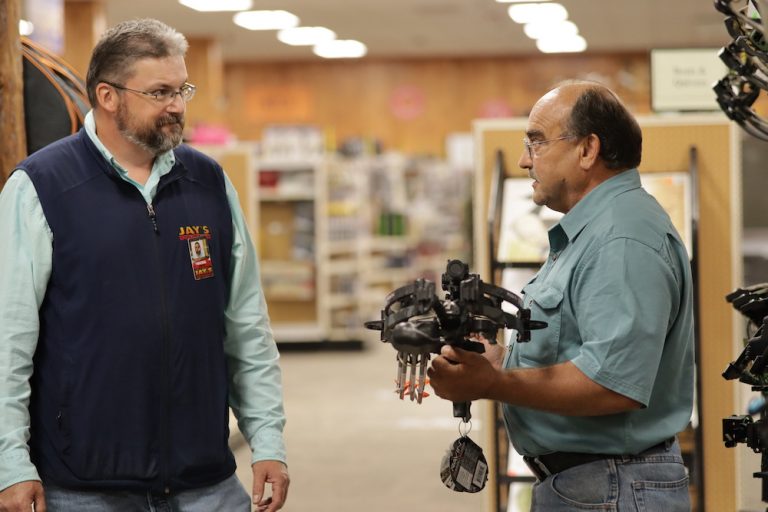Business
Navigating Marketplace Uncertainty
ATA members must constantly assess the business landscape to make small decisions that move their business forward.
Photo Credit: ATA
Change is inevitable, whether it’s with customers, competitors, the economy or society. As a result, business and marketplace uncertainty is also unavoidable. Many business owners think, “I don’t know what to do, so I’m not going to do anything,” but that’s the worst thing you can do, according to Hank Yacek, CEO and owner of Point of Impact Range and Retail Consulting.
Yacek started coaching businesses in the archery and firearms industry in 2012. He dedicates himself to helping businesses become more profitable, productive and valuable by making smart, fact-based decisions.
“The one thing that all business owners need to get comfortable with is that the only certainty is uncertainty,” he said. “It creeps into businesses when you don’t measure your landscape. You must keep your head up to see obstacles and opportunities.”
Yacek encourages business owners to think about their business as a ship and the market as an unpredictable sea. Every ship needs a captain to watch the horizon and steer toward opportunities and away from obstacles. A captain must view the entire sea (aka the big picture) to make little adjustments here and there. If a captain isn’t aware of the surroundings, they might sail into a storm before it’s too late. Navigate the unknown using the following concepts.

Try to track which products are selling well and which aren't. Photo Credit: ATA
You must analyze your business to find obstacles and opportunities using a mix of art and science. Objective assessments allow you to evaluate your business using math and science; subjective assessments call for observation and gut instinct, which are more of an art. Here are some things to look for in each category.
After identifying positive or negative trends, dive deeper to determine what’s driving them. “If things are doing well, ask why,” Yacek said. “If things are doing bad, ask why. There’s always a reason. Define that reason and focus on that with your team.”
For example, if a product isn’t selling, do your sales associates lack product knowledge or is there a newer version of the product on the market? Conversely, if a product is selling really well, is it because there’s a new feature or new customers who want it?
Use those reasons to dial your efforts up or down accordingly. Given the situation above, you might need to provide staff with selling points, rework your inventory, market the new feature or start a referral program to gain even more new customers. Yacek said many businesses focus on negative trends, which is good, but they fail to lean into positive trends, which leads to missed opportunities. Some business owners are hesitant to try trendy items because they believe they’re fads but taking a hybrid approach or selectively stocking some hot items is likely best.
Create monthly goals and to-do lists based on the “why.” Business goals help you measure success, keep you motivated and give everyday tasks more meaning.

Adapt to whatever you find and adjust your messaging or your audience. Photo Credit: ATA
Next, hold yourself accountable and strive to meet your goals. That mindset forces you to look for solutions that help you overcome obstacles and take advantage of opportunities.
For example, what do you do if you’re on track to hit a sales goal but a recession hits and recreational spending decreases? You can’t sit back and wait out the storm or your boat might sink. Instead, adapt. Yacek shared a few ideas on how to change course in that situation:
“Be agile and willing to move and adapt,” Yacek said. “Don’t be afraid to change brands or products, and look for diversification. Don’t get paralyzed.”
Uncertainty can overwhelm business owners, but if you break things down into manageable pieces and constantly adapt as you go, you’ll find yourself continually making small decisions that move your business forward.
Yacek said owning a business is a privilege, and with that comes the opportunity to interact with the business as much as you want. If you like being a bow technician and navigating the sea isn’t your thing, hire someone who can help. You must have someone at the helm, behind the ship’s steering wheel, making decisions — whether that’s you, a co-worker or a business consultant.
“In an uncertain market, we need direction and goals, and a rudder to steer toward them,” Yacek said. “Someone must own the future-forward, heads-up view of your business and determine where you’re going and where you’re headed. You don’t want to sit stagnant.”
When a big storm comes, boats don’t drop anchor or dock in the harbor exposed to the sea. A passive approach like that would leave them vulnerable to damage from rough waters. When it comes to handling storms more effectively, they head out to sea to navigate around the storm or opt to take the waves head-on. Storms can still be rough, but captains have much better control over the situation. Be a smart captain of your business and actively make decisions based on what’s ahead.

WE ARE HERE TO HELP THE INDUSTRY, TO HELP INDIVIDUAL BUSINESSES GET THE MOST OUT OF THE INDUSTRY, AND TO HELP YOU.